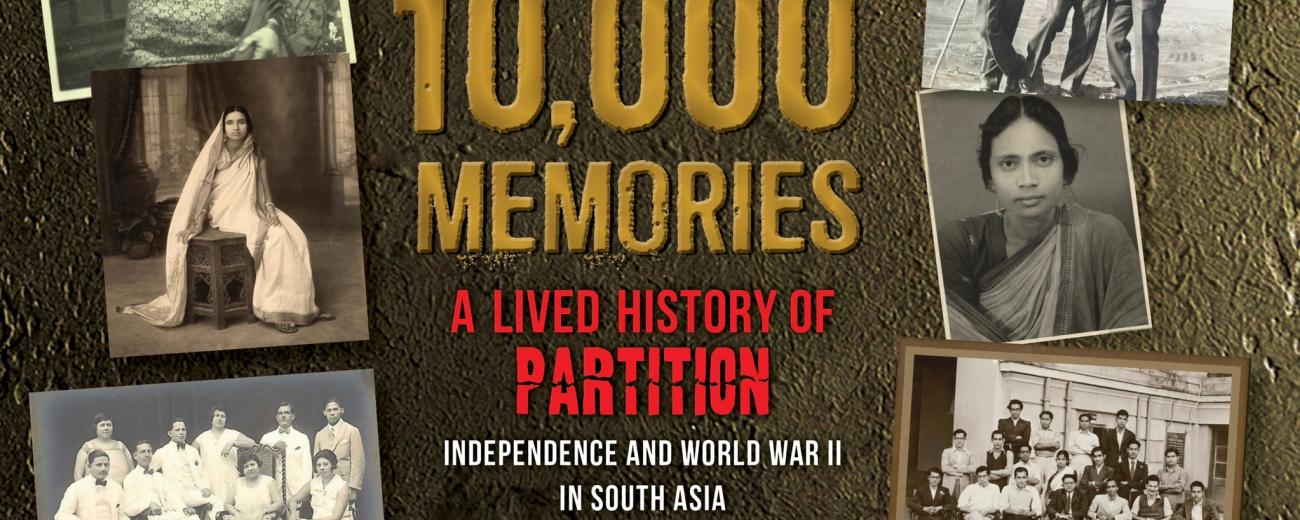
10,000 MEMORIES - A lived history of Partition, Independence and World War II in South Asia

Key information
- Date
- Time
-
6:00 pm to 7:00 pm
- Venue
- Paul Webley Wing, SALT
- Room
- Alumni Lecture Theatre
- Event type
- Event highlights
About this event
Based on the first and the largest pan-South Asian oral history survey ever conducted, 10,000 Memories offers a unique dimension and insight into the history of Partition and the mid-20th century Indian subcontinent unlike any previously written.
In the wake of the British retreat from South Asia in 1947, new political boundaries were created and long-unified ethno-linguistically defined regions were partitioned to create India and Pakistan (and modern-day Bangladesh), triggering unprecedented violence and the largest mass migration of the 20th century. Oral histories provide a brand new insight into this defining moment in world history, contextualizing Partition within the wider socio-economic landscape of the forgotten China-India-Burma Theater of World War Two, and the struggle for influence in British India by the Allied and Axis powers.
What is history? Is it the facts and figures we learn in classrooms? We believe it is more than that. It is the culmination of contributions from every human that has ever lived. Every moment in history is as complex as this very moment on earth, right now. Yet, to grasp this complex past, humans have a tendency to reduce multidimensional historical events into single sentences or short stories. This helps our minds simplify an incomprehensibly complex past, but it also erases the nuance and more often than not, the simplified perspectives fuel modern conflicts. 10,000 Memories aims to change this by providing color and dimension to mid-20th century South Asian history and especially the 1947 Partition.
10,000 Memories combines a stunning visual history featuring over 1,000 photographs with thought provoking quotes on each page for the casual browser, while longer oral history summaries (stories) on each page help satiate curiosities of the voracious reader. The stories are evocative and bring history to life. You may cry, you may find yourself laughing uncontrollably or simply find yourself spellbound. These are our ancestors’ stories and through their DNA, which we carry, these are our stories too.
To give equal weight to the east and west, 10,000 Memories can be opened from either cover. There is no front or back, but rather the eastern cover and the western cover. The book opens in Kandahar, Afghanistan on one side and Yangon, Myanmar on the other, meeting in the middle at the Deccan plateau. Readers will journey across the subcontinent from one end to the other, crossing rivers and mountain passes, experiencing the 20th century vicariously through stories.
The pages are punctuated by explanatory boxes which provide greater historical context to the stories. 10,000 Memories is designed to be equally appealing as a coffee table book, as a textbook accompaniment in the classroom, or to grace the shelves of the advanced scholarly researcher. It is for everyone, the reader and the non-reader; the expert and the non-expert.
- Chair: Prof. Navtej Purewal.
- Speakers: Dr Guneeta Singh Bhalla, Kamaldeep Singh




